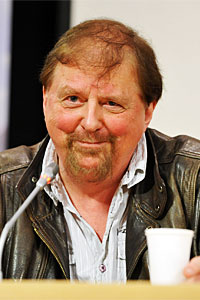
On Monday, the most amazing political survivor of the 20th century, Hun Sen, formally passed the rule of Cambodia down to his eldest son Hun Manet after about 38 years in power.
From youthful commander in the genocidal Khmer Rouge to Vietnamese puppet to coup-maker to dynastic autocrat, he did it all without ever caring about either ideology or loyalty.
There is an actual king in Cambodia, but he takes his orders from the country's real ruler, Hun Sen. Hun Manet now bears the title of the country's prime minister, but he's not in charge either.
Hun Sen retains ultimate control as the leader of the ruling Cambodian People's Party, and says he will "continue serving in other positions for at least until 2033".
His 45-year-old son and heir Hun Manet has been educated and trained for the role of ruler -- indeed all his sons have official positions -- but they will all be on short leashes until their father passes on. (Hun Sen has just turned 71, so probably a while yet.)
Yet it's hard to say what kind of purpose, if any, Hun Sen had in mind during his lifelong drive to take and hold power.
It undoubtedly started as a mere struggle for survival.
Hun Sen claims that he joined the Khmer Rouge (Cambodian Communists of the Maoist persuasion, only crazier) when American bombers hit his home village of Memot in 1970 as part of US Secretary of State Henry Kissinger's secret bombing campaign in Cambodia, and that may be partly true.
But it's also true that Memot was near the Vietnamese border and part of the "Ho Chi Minh Trail" that brought weapons and supplies down from North Vietnam to South Vietnam, so Vietnamese soldiers dominated the area.
Hun Sen may have joined the Khmer Rouge for revenge, but he may just have been choosing the least bad option. He was only 18 at the time.
A great deal of effort has gone into obscuring what he did in the next few years, but we know that he was already a commander in charge of about 2,000 troops when the victorious Khmer Rouge marched into Phnom Penh in 1975.
We also know that he missed the expulsion of the capital city's population into the countryside and the early days of the "killing fields", because he had lost an eye to shrapnel just before the city was taken.
However, it is impossible to believe that he had no part in the genocide of the Vietnamese ethnic minority and the systematic slaughter of "intellectuals" and "other class enemies" in the following two years.
This was a period when fully one-quarter of Cambodia's population was murdered by the Khmer Rouge, and Hun Sen, as a mid-ranking commander, would have been killed himself if he did not take part in the torture and murders. His lifelong pattern has been to do whatever is necessary to survive.
So when the internal purges began in the ranks of the Khmer Rouge after the leadership's absurd attack on Vietnam failed in 1977, Hun Sen saved his life by defecting to the Vietnamese.
And when the exasperated Vietnamese launched a full invasion and drove the Khmer Rouge from power in 1979, he returned to Cambodia with them to serve as foreign minister in the puppet government they installed in Phnom Penh -- at the age of 26.
He had been shaped into a man whose primary purpose was survival. He had also learned that to survive you must move first and be ruthless, and that has been the pattern of his life.
By 1985 he was prime minister, and he even managed to hold on to the job when his party lost the United Nation-sponsored election in post-occupation Cambodia in 1993 (although quite a few other people lost their lives).
A lot more people died, many of them in summary executions, in the 1997 coup that finally secured him permanent and unchallenged power.
It has been a spectacular career, but also a strangely meaningless one. Politically the country has been infantilised.
Hun Sen's regime has grown more repressive over the years, not less, and it's two long generations since anything resembling real democratic politics has made even a brief appearance in Cambodia.
The economy is growing reasonably fast at the moment, but every other Southeast Asian country's GDP per capita is at least two or three times higher than Cambodia's (and Myanmar's, which is similarly afflicted by generations of authoritarian rule).
So what was Hun Sen for, exactly? Hard to say, but Cambodians will probably have another decade to think about it, despite the apparent change of leader.
Gwynne Dyer is an independent journalist whose articles are published in 45 countries. His new book is 'The Shortest History of War'.
